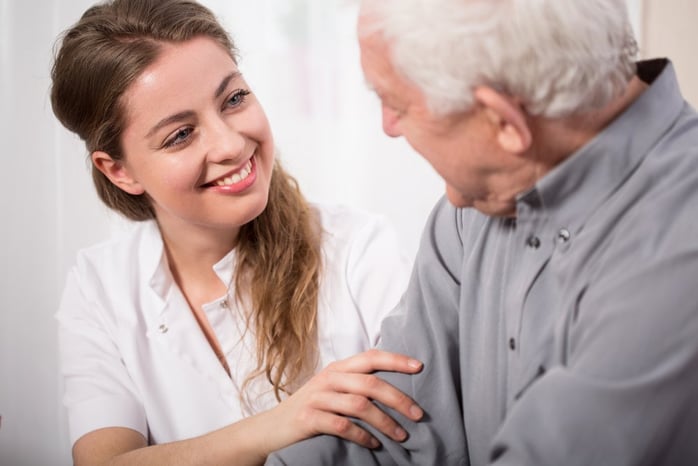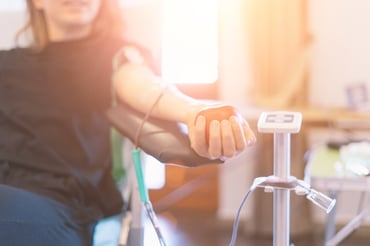
If you are a cancer survivor, you know how valuable it is to receive help from others. Cancer treatment can be an isolating experience and most people appreciate a helping hand. There may have been several people who provided both emotional and practical support during your treatment. Now as a cancer survivor, you may be looking for ways to give back and help others. Being on a bone marrow registry is one way you can help provide possible treatment for a cancer patient.
Bone marrow is used to treat certain forms of cancer, including leukemias, lymphomas, multiple myeloma, and rarely, solid tumor cancers. In addition, donated bone marrow helps people with other conditions, including immune deficiency disorders and severe aplastic anemia. If you're interested in donating bone marrow, you may be wondering if being a cancer survivor excludes you from being on a registry.
Related Reads:
Bone Marrow Donation After Cancer Treatments
Your ability to donate bone marrow depends on the type of cancer you had, how long ago you were treated, and what treatments you received.
Which Cancer Survivors Can't Be Bone Marrow Donors?
Unfortunately, you are not able to donate bone marrow if you:
- had any form of blood cancer
- were treated with any form of chemotherapy
- were treated using most forms of radiation treatments
Which Cancer Survivors Can Donate Bone Marrow?
If you received certain radiation treatments, you may still be eligible to donate:
- localized bead radiation for breast cancer
- localized bead radiation for prostate cancer
- radioactive iodine for thyroid cancer
As long as you did not receive chemotherapy or radiation, the following forms of cancer may not interfere with your ability to donate bone marrow:
- Cured, local basal cell or squamous cell cancer
- Healed forms of in situ cancer: melanoma, cervical cancer, breast cancer, and bladder cancer
- A history of precancerous cells
For most other forms of cancer, you may be able to donate if the following are true:
- You were diagnosed over five years ago, and
- You have not had any recurrence of cancer or metastases
While these guidelines may seem strict, they are not meant to discriminate. Medical guidelines for bone marrow donation are in place to protect both the donor's and the recipient's health. As a cancer survivor, registries do not want to compromise your health. And recipients need to receive the healthiest bone marrow possible for their best chance at recovery.
Additional Guidelines for Bone Marrow Donation
Aside from a history of cancer, there are other guidelines for donating bone marrow. These guidelines are different from the guidelines for donating blood.
There are several factors that could make you ineligible for bone marrow donation. Typically, a potential bone marrow donor:
- Must be between 18 and 60 years of age. Often, registries will automatically remove donors on their 61st birthday. Bone marrow from people between the ages of 18 and 44 is used more often and is in higher demand. There is a slight increase in complications for donors who are 60 or older. And patients who receive bone marrow from younger donors often have a more successful recovery.
- Cannot be pregnant at the time of donation. Pregnant women may be on the registry, but would need to postpone donation until they are recovered from childbirth.
- Must be at or under a certain BMI. Be the Match registry requires that donors not have a BMI over 40.
There are other conditions that may make you ineligible to donate bone marrow. If you have any specific questions about donating bone marrow, you should contact a bone marrow registry.
Why it is Important to be on a Donor List
In order to successfully donate bone marrow, the donor's and the recipient's human leukocyte antigen (HLA) must match. HLAs are proteins found on your white blood cells. When the donor and the recipient have the same HLA type, the recipient is less likely to have an immune response to the donation. HLA-matched bone marrow is less likely to be perceived as "foreign" by the body and lowers the risk of potential complications.
Some patients in need of bone marrow are successfully matched with a relative. However, many patients are not matched with a family member for a variety of reasons. Their relatives may not be an HLA match or are excluded from donating for health reasons. These cancer patients need to turn to a registry for a potential donor.
Keep in mind that not everyone who is put on a registry will be matched or even contacted for further information. Being on the registry, for those that are willing and able, is a noble thing to do. Bone marrow donors have the chance to provide life-saving treatments. The more people who are on a bone marrow donation list, the more potential matches there could be.
Other Ways You Can Help As a Cancer Survivor
As a cancer survivor, helping cancer patients may be important to you. Many people find strength from others while they have cancer and it can be fulfilling to help others. Even if you are ineligible to donate bone marrow, or are on a registry but never matched, there are still plenty of ways you can help. There are opportunities for everyone, no matter your skill sets or how much time you have to donate.
Those who are "people persons" have plenty of hands-on opportunities:
- Offer to drive patients to medical appointments
- Help out with light housekeeping and running errands
- Volunteer your time at cancer fundraisers like charity walks and runs
If you prefer more behind the scenes work, you can:
- Join an online cancer support group or Facebook page
- Do office work for a cancer organization
- Volunteer one-on-one for emotional support
Do You Have More Questions?
If you still have questions about bone marrow donation after cancer treatment, feel free to contact us today. At Compass Oncology, we know how important it is to have accurate information and feel supported. We are here to help with any cancer-related questions you may have.




